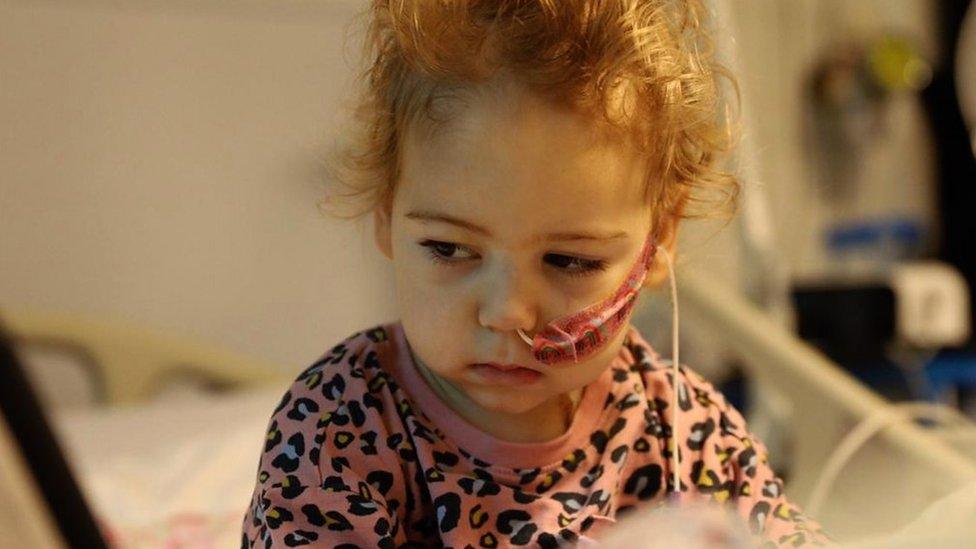Cancer: Swansea family struggle with cost of son's treatment
- Published
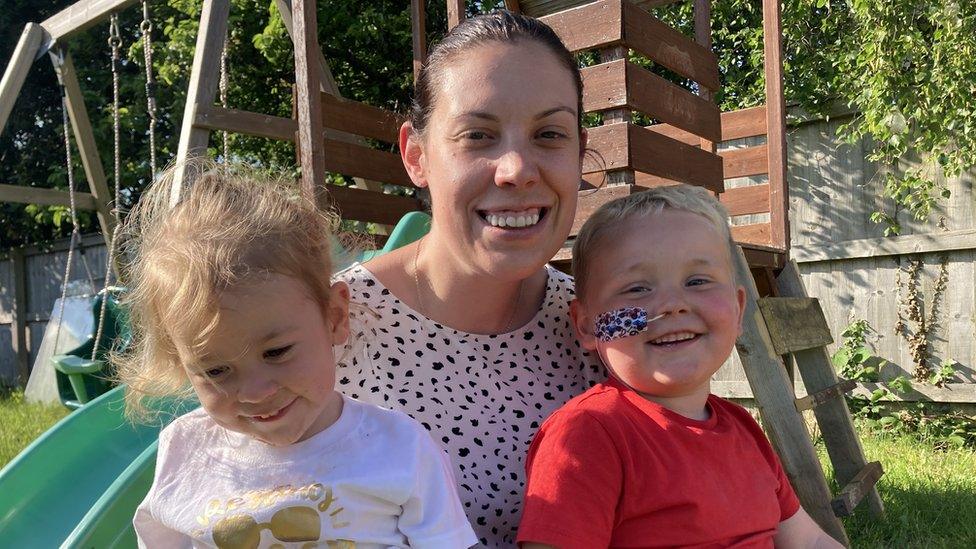
Natalie has set up a charity in the name of her son, Morgan (right), who has cancer.
A woman whose three-year-old son has cancer says she worries about keeping a roof above her family's head.
Natalie Ridler, 33, from Swansea, said the cost of travelling for treatment while not being able to work as much has led to sleepless nights.
She set up a charity in son Morgan's name to bridge the gaps for families.
The Wales Cancer Alliance, external said it was a "balancing act" for charities as they faced fewer donations while demand continued to grow.
The Welsh government said it was committed to providing "excellent care" for patients but sometimes families needed to travel for treatment.
"All of a sudden, a cancer diagnosis comes along and it turns the world on its head," said Natalie, after Morgan was diagnosed with a rare type of cancer in 2021.
After eight rounds of chemotherapy, Morgan got better. But the cancer returned.
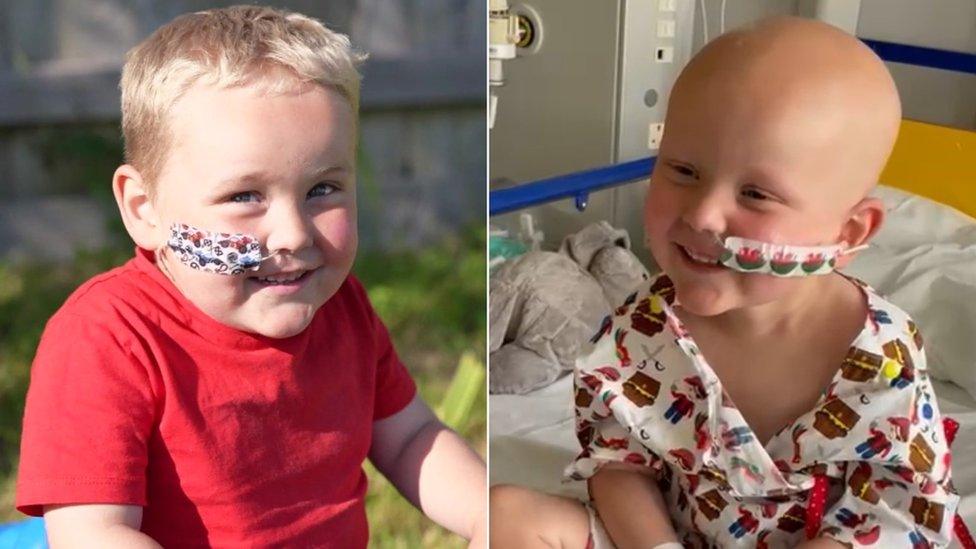
Morgan was diagnosed with a rare type of cancer in 2021 and he now faces further chemotherapy
On top of the emotional strain, the cost of travelling for treatment, feeding and caring for Morgan while trying to work part time keeps Natalie awake at night.
"You can live to your means, but when those wages start dropping below your expenses, is when things become really quite difficult, because you still need to go and do all those cancer-related treatment things," she said.
"You've still got to keep a roof above your head.
"It does feel sometimes as if you're being financially penalised for having an unwell child and there's not much you can do about it."
'Gives me purpose'
Natalie said there has been financial support from larger charities and some help through Morgan's disability living allowance grant, external, but it "doesn't fill the gap".
The family decided to set up their own charity in February, Morgan's Army, external, and they have already raised thousands of pounds.
"We try to listen to families' stories and their backgrounds and work with them to see how we can help decrease their mental load or financial load," she said.
"There's not many certainties in life but what is certain is that people will always need money, and we can fundraise and we can help families in different ways and that gives me hope and also gives me purpose."
As Morgan's cancer progresses, he will face further and more intense chemotherapy over the next weeks.
"We're always just so grateful that there's another fight to have," Natalie added.
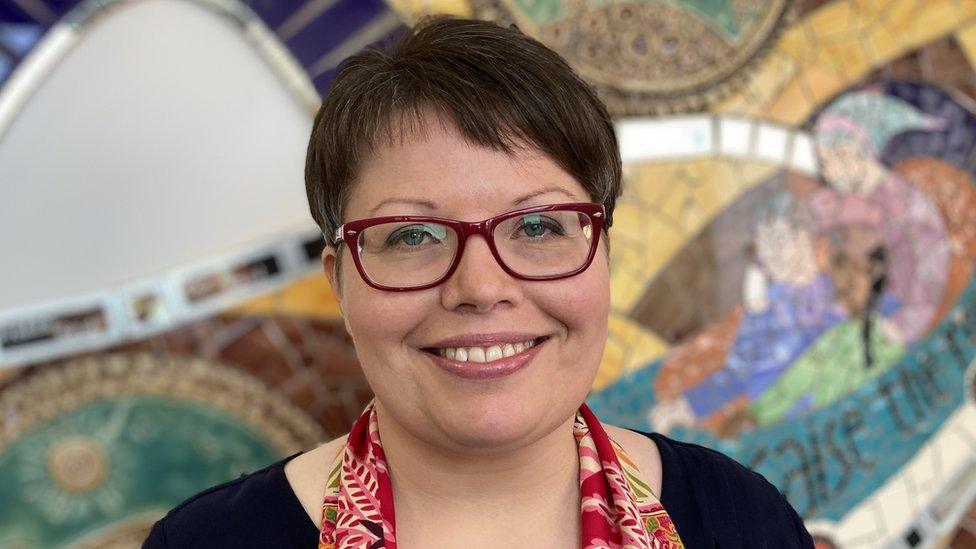
Menai Owen-Jones is the chief executive of Latch children cancer charity
Menai Owen-Jones, chief executive of Latch cancer charity, said it has been a difficult start to the year with a drop in donations.
"For us, it is concerning to see income coming down and we have to consider what funds do we have available, then to provide grants and services to our children and families when they need us most," she said.
"We've seen an increase in the number of grants we've provided but also in their average value and overall amount.
"In 2022, we gave nearly £365,000 worth of grants, compared to £295,000 the year before."
Lowri Griffiths, chairwoman of Wales Cancer Alliance, said it's a "balancing act" for charities.
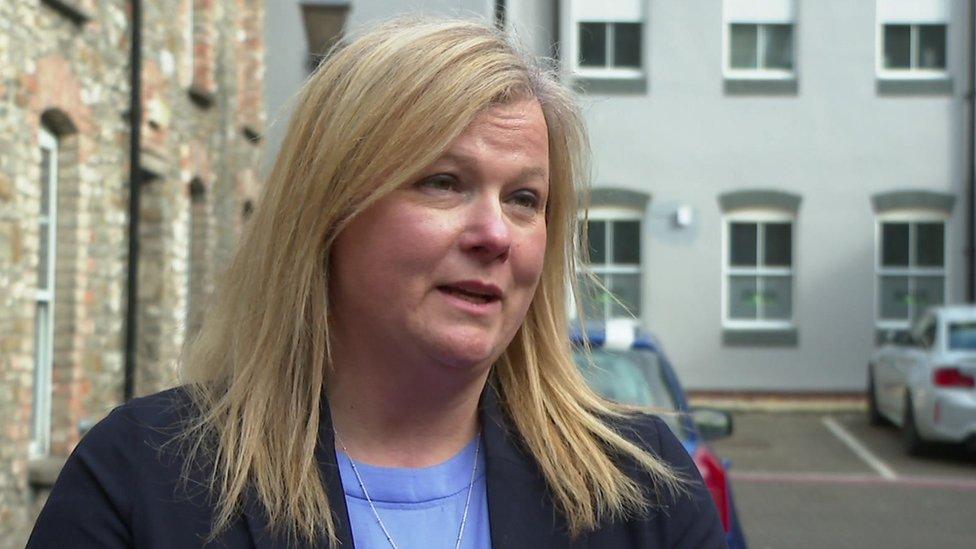
Lowri Griffiths, chair of Wales Cancer Alliance, says charities are facing a difficult situation with a rise in demand but a fall in donations
"If funds go down and people are unable to donate through the usual routes, whereas they may have given somebody £10 to run a marathon, that's now having to be spent on fuel or food, they're obviously not going to be doing that," she said.
"But that does have an impact then because we're unable to run the services, we have to make cuts, or we can't grow our services in line with demand.
"So there's a huge balancing act I think in terms of funding."
A Welsh government spokesperson said: "We are committed to providing excellent care for children and young people with cancer, but in some cases this may mean families need to travel outside their health board area.
"In certain circumstances, families can be eligible to claim for help with their travel costs from the NHS if their child has to go to hospital for NHS treatment."
Related topics
- Published30 November 2022
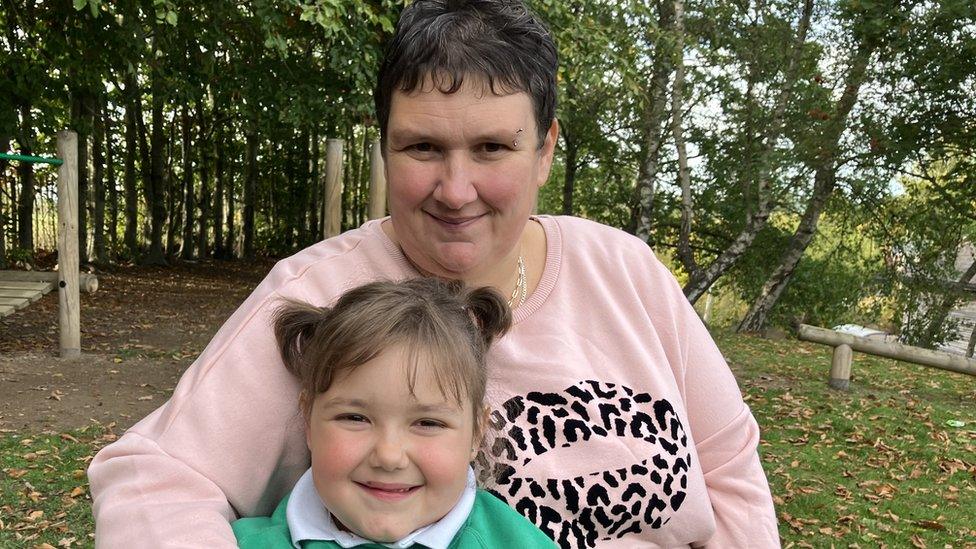
- Published30 October 2022
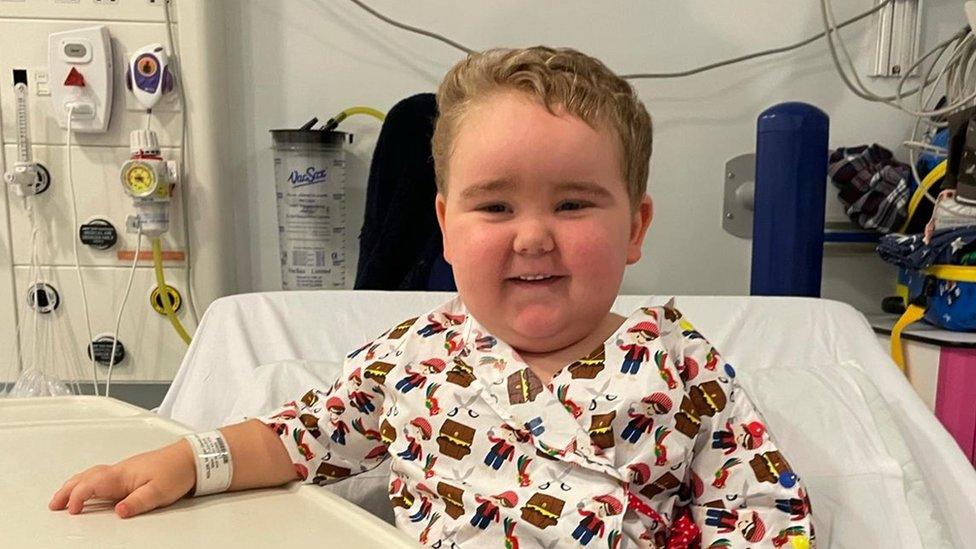
- Published27 March 2022
